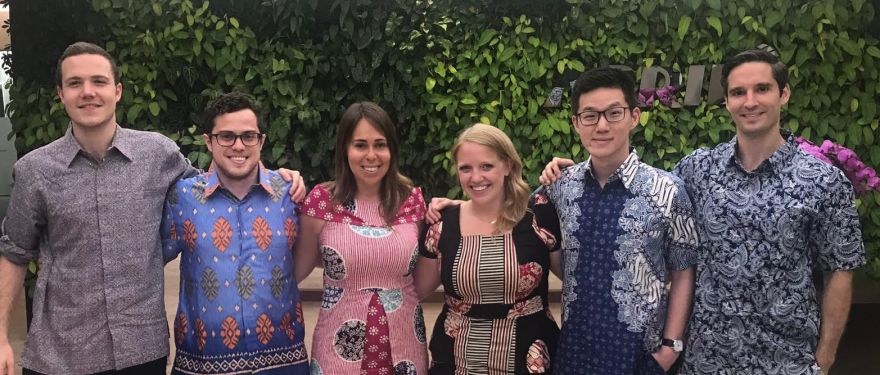Stephanie Schwartz (MBA 2019) grew up in Michigan before attending the Ross School of Business at Michigan for her undergraduate degree in Business Administration. Prior to coming to HBS, Stephanie lived in New York City and worked in retail as an Omni Buyer for Bloomingdale’s. Stephanie is interested in opportunities in the early stage Venture Capital space focusing on consumer investments for her post HBS career. In Stephanie’s first year at HBS (RC Year), she had the opportunity to visit Jakarta, Indonesia to work alongside fellow classmates at a nonprofit. We caught up with Stephanie to learn about her experience in Jakarta through the FIELD Global Immersion (FGI) course.
FIELD Global Immersion is the exciting way that we end our first year at Harvard Business School. Students have the opportunity to leave the classroom and apply case-method learning to a real-world project in an emerging economy. This year, students could choose from the following locations around the world: Europe (Athens, Helsinki), Africa (Casablanca, Johannesburg, Cape Town), South America (Sao Paolo, Bogota, Buenos Aires), Asia (New Delhi, Bangkok, Shanghai, Jakarta) or Boston.
As you can see from all the places to choose from, this is a hard choice. I wanted to go to a country that I had not been to before, and an area of the world that I would want to explore after the project. This led me to Jakarta, and ultimately, a fun couple of weeks exploring Southeast Asia after the project was completed. You don’t get to pick which project you work on but you are assigned to an area that is new to you (and your team). Also, you can rule out certain industries or topics based on personal needs. Honestly, I probably would not have picked my project if I had the choice, but I am glad it was the one assigned to me.
Before we leave campus, each student gets assigned to a Global section (based on your location), and a project team which is made up of a group of six RC students, including you. This is the team with whom you will be tackling your global partner’s problem. And lastly, you’re assigned to a global partner.
So what did my FGI look like? I went to Jakarta, Indonesia, was partnered with a great group of people, and assigned to an interesting problem for a non-profit called the Tanoto Foundation. We were given the task to increase the exclusive breastfeeding rate in Jakarta. Through the project, we had the opportunity to talk with a variety of Indonesian women from different socio-economic groups and backgrounds. We used the insights from these conversations to begin design thinking and eventually present a solution. One of the exciting challenges we encountered was dealing with cultural differences and discussing a very personal topic in a religious country. I was honestly surprised by how open the women were to talking to me. It was a privilege hearing these women open up to us and share their personal struggles and successes, as well as getting to work with a non-profit and tackle an issue that allowed us to stretch our classroom learning.
Having our new global section and team was also a great way to meet other RC students outside of my section, and build stronger relationships across the class. At some point during the trip, we were all stretched a bit out of our comfort zone, which allows for both personal and interpersonal development. FGI reminded me how we will all be leaving HBS with a set of skills that are applicable in more scenarios than you would initially imagine, and it reaffirmed that whatever future career challenges I face, I have the building blocks to tackle them and work towards a solution. And through this experience, we have all built a great network of people to call on for insights if we ever get stuck!
Now I just have to figure out how to have this experience again in EC year through taking one of the IFC courses in Israel, Japan, London, Boston or LA!

